I have just posted this question, which answer came right away. It, in turn, creates the following new question:
If my understanding is correct, the StreamContent object, from HttpResponseMessage, is created upon making an HTTP request via HttpClient.GetAsync. Its Header property, or part of it, will be set according to meta tags included in the HTML source file.
For instance, a meta tag can tell the response object with which charset encode the file's contents.
<meta http-equiv='Content-Type' content='text/html; charset=utf-8' />
Running a request to a resource that contains such line will generate a HttpResponseMessage.Content.Header with this setting.
In the other question referenced at the top of this question, I mention about a response object being created without the correct encoding. Since the HTML source that generates such incompatible response does contain the setting that is responsible for creating responses properly encoded:
<meta HTTP-EQUIV="Content-Type" CONTENT="text/html; charset=windows-1255">
what is the reason that responses for that site are not being passed the charset setting included in the meta tag and thus being rendered in an incorrect charset?
Here's a pictorial description of the question: both sites contain the meta tag with charset setting, but one, for some reason, misses it...
Fiddler's header details for both requests:
Working one: (removed cookie header)
Request:
GET http://www.ynet.co.il/home/0,7340,L-8,00.html HTTP/1.1
Host: www.ynet.co.il
User-Agent: Mozilla/5.0 (Windows NT 6.1; WOW64; rv:45.0) Gecko/20100101 Firefox/45.0
Accept: text/html,application/xhtml+xml,application/xml;q=0.9,*/*;q=0.8
Accept-Language: en-US,en;q=0.5
Accept-Encoding: gzip, deflate
Connection: keep-alive
If-Modified-Since: Thu, 31 Mar 2016 10:04:39 GMT
Response:
HTTP/1.1 200 OK
vg_id: 1
X-me: 06
Content-Type: text/html; charset=UTF-8
Last-Modified: Thu, 31 Mar 2016 10:38:57 GMT
Accept-Ranges: bytes
VX-Cache: HIT
WAI: 01
V-TTL: 0
backend-cache-control:
Content-Length: 410685
Vary: Accept-Encoding
Date: Thu, 31 Mar 2016 10:38:48 GMT
Connection: keep-alive
Problematic one:
Request:
GET http://winedepot.co.il/ HTTP/1.1
Host: winedepot.co.il
User-Agent: Mozilla/5.0 (Windows NT 6.1; WOW64; rv:45.0) Gecko/20100101 Firefox/45.0
Accept: text/html,application/xhtml+xml,application/xml;q=0.9,*/*;q=0.8
Accept-Language: en-US,en;q=0.5
Accept-Encoding: gzip, deflate
Cookie: __utma=201832727.725995063.1458660502.1459413977.1459418530.8; __utmz=201832727.1458660502.1.1.utmccn=(direct)|utmcsr=(direct)|utmcmd=(none); __utmc=201832727; ASPSESSIONIDCQTRQCAQ=FEOHEBFCBGABBKOBAHOGKBGB
Connection: keep-alive
Response:
HTTP/1.1 200 OK
Cache-Control: private
Content-Length: 118225
Content-Type: text/html
Server: Microsoft-IIS/7.5
X-Powered-By: ASP.NET
Date: Thu, 31 Mar 2016 10:36:21 GMT
